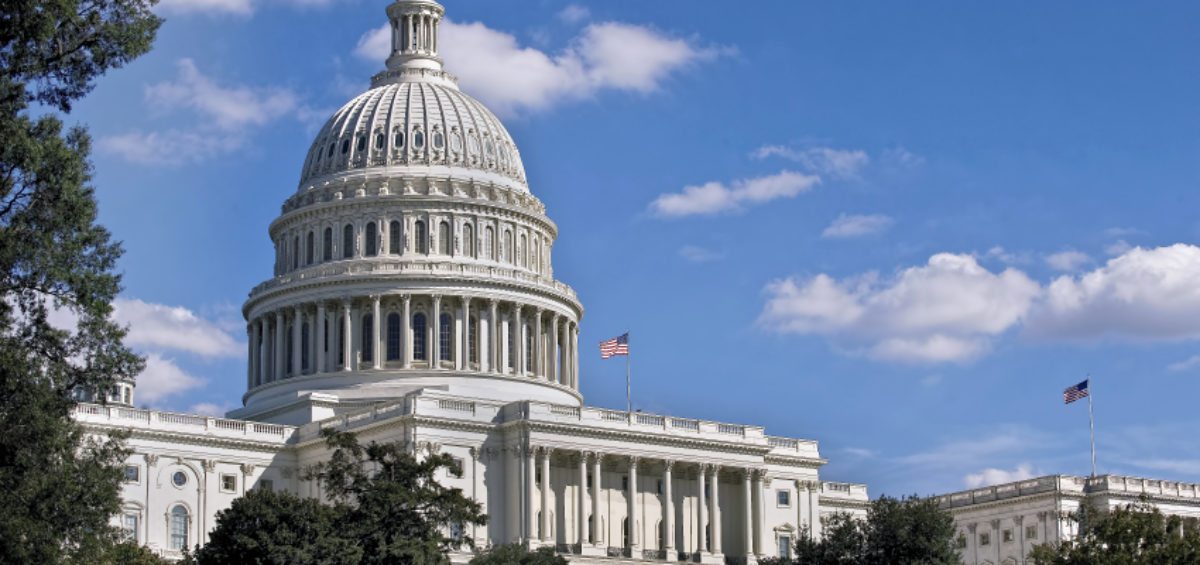[vc_row][vc_column][vc_column_text]
A group of bipartisan lawmakers have reintroduced the CARERS Act in response to Attorney General Jeff Sessions’ attempt to remove federal medical marijuana protections.
U.S. Senators reintroduced a bill last week that would reclassify cannabis and protect medical marijuana states from federal prosecution. The Compassionate Access, Research Expansion and Respect States (CARERS) Act is first piece of federal legislation that would reform cannabis prohibition.
Sens. Kirsten Gillibrand (D-NY), Rand Paul (R-KY), and Cory Booker (D-NJ) originally introduced the CARERS Act in March 2015. Three more U.S. senators – Sens. Lisa Murkowski (R-AK), Al Franken (D-MN), and Mike Lee (R-UT) – joined as sponsors when the bill was reintroduced last Thursday.
“The fact is our marijuana laws in America are broken,” Sen. Booker said last week when the bill was unveiled. “They are savagely broken, and the jagged pieces are hurting the American people.”
Nearly 30 U.S. states and Washington D.C. have legalized marijuana for medical purposes, but federally marijuana remains prohibited under the Controlled Substances Act. The Obama administration had taken a hands-off approach to enforcing federal law. Still in place is the Rohrabacher-Farr Amendment, which prevents the use of federal funds to interfere with states passing or implementing medical marijuana laws.
Activity by officials within the Trump administration suggests a potential change in policy. Last week it became public that U.S. Attorney General Jeff Sessions sent a letter to congressional leaders in May requesting that protections under the Rohrabacher-Farr Amendment be removed.[/vc_column_text][/vc_column][/vc_row][vc_row][vc_column][vc_single_image image=”17365″ img_size=”1200×250″ onclick=”custom_link” img_link_target=”_blank” link=”https://www.medicalmarijuanainc.com/overview-of-medical-marijuana-research/”][/vc_column][/vc_row][vc_row][vc_column][vc_column_text]The proponents of the CARERS Act believe Sessions’ thinking is misguided and have reintroduced the bill to prevent him and the Justice Department from interfering with medical marijuana states. The bill had fallen stagnant in the Senate Committee on the Judiciary after it was introduced in 2015, but the bipartisan group of sponsors believe that they have the backing from enough lawmakers this year to get the bill passed.
“I believe things are changing and they’re changing fast,” Sen. Gillibrand told Rolling Stone. “I think we will get the support we need.”
The CARERS Act, if passed into law, would make five significant changes to the current U.S. cannabis policy:
It would reclassify cannabis as a Schedule II substance:
Under current law, cannabis is classified as a Schedule I substance under the Controlled Substances Act. Schedule I is reserved for substances with the highest potential for abuse and no medicinal value. The CARERS Act would reschedule cannabis to Schedule II, reserved for less dangerous drugs with an accepted medical use. This change in classification would remove restrictions that have severely hindered medical research investigating cannabis’ potential therapeutic applications.
It would protect medical marijuana states from federal prosecution:
Under the CARERS Act, states would be permitted to adopt and amend their own medical marijuana policies without federal interference. Medical marijuana businesses and patients would be able to distribute or consume cannabis without the risk of being prosecuted by the U.S. Drug Enforcement Agency.
It would lift restrictions preventing veterans from obtaining cannabis:
Even in states with legal medical marijuana, doctors working within the Department of Veterans Affairs are unable to recommend cannabis to veterans because of the substance’s federal legal status. The CARERS Act would allow VA doctors to recommend marijuana treatments for veterans suffering from conditions like post-traumatic stress disorder (PTSD), chronic traumatic encephalopathy (CTE), and chronic pain.
It would allow banks to service cannabis businesses:
Marijuana’s federal legal status prevents federal banks from working with cannabis businesses, even in states that have legalized medical or adult use marijuana. This forces businesses to operate cash-only, putting retailers at risk and causing tax problems. The CARERS Act would give federal banking access to medical marijuana businesses.
It would remove marijuana-derived cannabidiol (CBD) from the Controlled Substances Act:
While cannabidiol (CBD) itself is not specifically prohibited the Controlled Substances Act, marijuana is. Under the CARERS Act, cannabis with less than 0.3 percent tetrahydrocannabinol (THC) would be removed from the Controlled Substances Act’s schedules altogether. States would therefore be legally allowed to legalize and regulate marijuana strains that are high in CBD and low in THC.
Learn more about cannabis laws throughout the U.S. by visiting our education page. Keep up with the developing legal cannabis industry through our news feed.[/vc_column_text][/vc_column][/vc_row]






